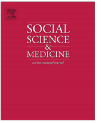
On the Prospects for a Blame-Free Medical Culture
Abstract
Official policy-making bodies and experts in medical error have called for a shift in perspective to a blame-free culture within medicine, predicated on the basis that errors are largely attributable to systems rather than individuals. However, little is known about how the lived experience of blame in medical care relates to prospects for such a shift. In this essay we explore the benefits and costs of blame in medical culture. Our observations are informed by our clinical experience and supported by interview data from a study in which 163 American physicians were interviewed about caring for a total of 66 dying patients in two institutions. We observe three ways in which blame is invoked: (1) self-blame, (2) blame of impersonal forces or the “system,” and (3) blame of others. Physicians articulate several important functions of blame: as a stimulus for learning and improvement; as a way to empathically allow physicians to forgive mistakes when others accept responsibility using self-blame; and as a way to achieve control over clinical outcomes. We argue that, since error is viewed as a personal failing and tends to evoke substantial self-blame, physicians do not tend to think of errors in a systems context. Given that physicians' ideology of self-blame is ingrained, accompanied by benefits, and limits a systems perspective on error, it may subvert attempts to establish a blame-free culture.
Citation:
M. Collins, S. Block, R. Arnold, and N.A. Christakis, "On the Prospects for a Blame-Free Medical Culture" Social Science and Medicine, 69(9): 1287-1290 (November 2009)